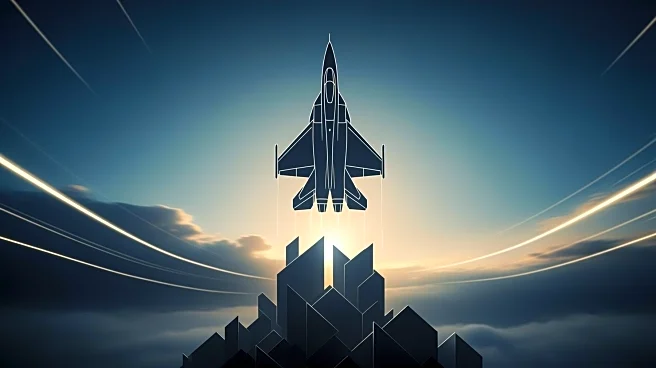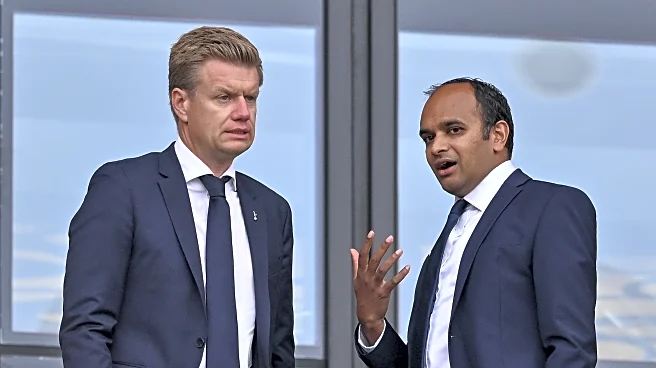What's Happening?
Ukraine has signed a letter of intent to purchase up to 100 Rafale fighter jets from France, along with drones and air defense systems. The agreement, announced by President Volodymyr Zelenskyy and French
President Emmanuel Macron, aims to bolster Ukraine's defenses against ongoing Russian attacks. The deal includes advanced weaponry and radars, and is expected to last for a decade starting from next year. France's commitment to supporting Ukraine's military capabilities is part of broader efforts by NATO and European allies to provide necessary defense assistance.
Why It's Important?
The acquisition of Rafale fighter jets represents a significant enhancement of Ukraine's military capabilities. The advanced aircraft will improve Ukraine's air defense and combat readiness, crucial for countering Russian aggression. The deal strengthens the strategic partnership between France and Ukraine, highlighting Europe's commitment to supporting Ukraine's sovereignty. It also reflects the broader geopolitical dynamics, with European countries stepping up defense support amid limited U.S. military backing. The agreement could influence regional security and defense strategies.
What's Next?
Ukraine is expected to begin receiving the Rafale jets and other defense equipment over the next decade. The deal may prompt further military cooperation between Ukraine and France, including joint training and production initiatives. Ukraine's diplomatic efforts to secure additional support from Western allies may intensify. The agreement could lead to discussions within NATO and the EU on enhancing collective security and defense capabilities. The geopolitical implications of the deal may influence future negotiations and alliances.
Beyond the Headlines
The deal raises ethical and legal questions about arms sales and military support in conflict zones. It highlights the challenges of balancing defense needs with international law and diplomacy. The event may lead to increased scrutiny of arms trade practices and the need for transparency in defense agreements. The broader implications for regional security and stability could be significant, as countries reassess their defense strategies in response to evolving threats.










